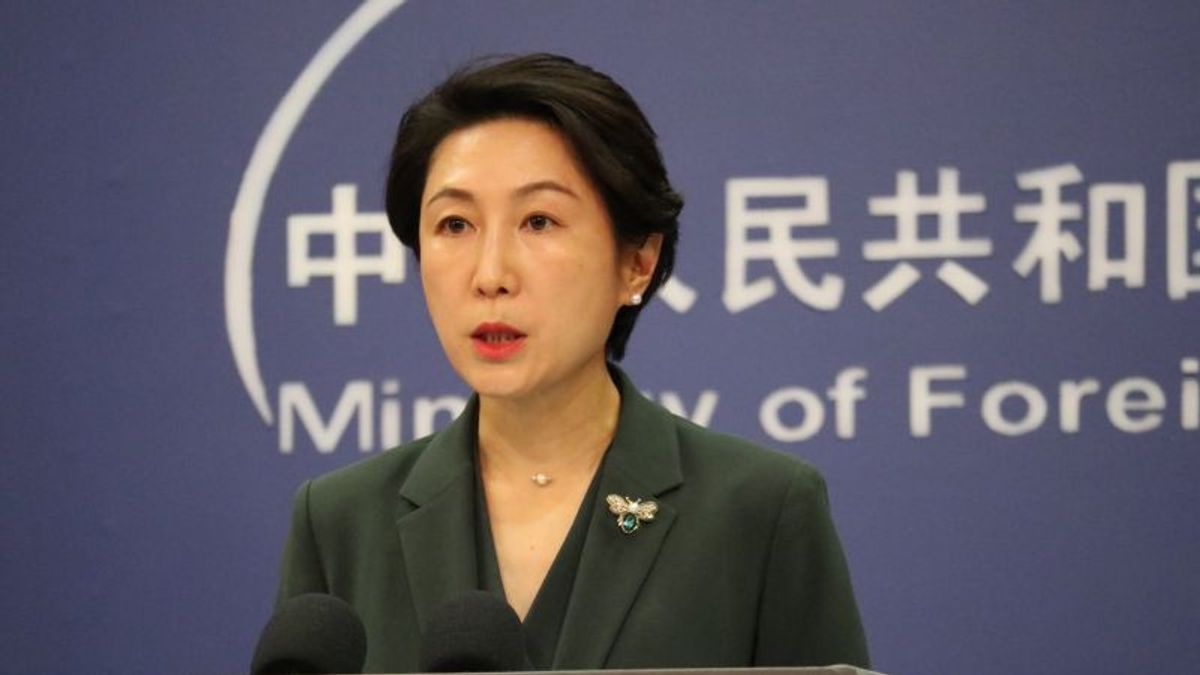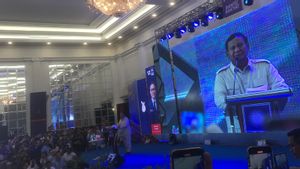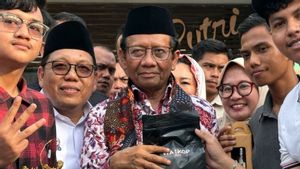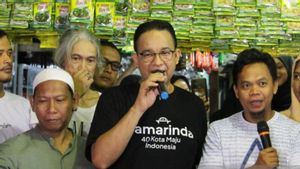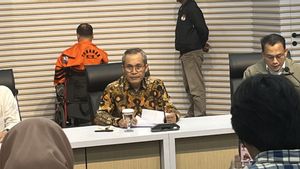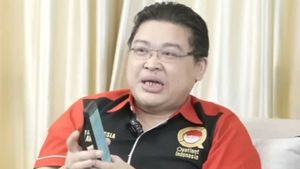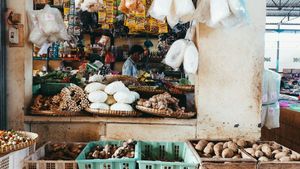JAKARTA - Foreign Ministry spokesman Mao Ning said China is ready to conduct consultations to discuss the South China Sea Code of Conduct (Coduct) with ASEAN member countries.
"We hope that ASEAN countries will work closely with us to achieve the targets set and speed up consultations for the implementation of the CC," Mao Ning said when delivering a statement to the media in Beijing, China.
Earlier on Tuesday (9/1), Indonesian Foreign Minister Retno Marsudi said he was ready to cooperate with all ASEAN member countries, including the Philippines, to resolve the South China Sea COC as soon as possible.
The Philippines and China have frequently been involved in disputes in the waters of the South China Sea in recent months, especially near the coral island China calls "Ren'ai Jiao" while the Philippines calls it "Beting Ayungin" part of the Spratly Islands.
"China and ASEAN countries are working to adopt the Code of Conduct in the South China Sea which is an important step in implementing the Declaration of Behavior of Parties (Declaration of Conduct or DOC) in the South China Sea," said Mao Ning.
According to Mao Ning, consultations between the Chinese government and ASEAN countries in handling the CC went smoothly.
"The second phase of discussion has been completed and the third phase of discussion has begun. The parties have adopted guidelines to speed up consultations on COC," said Mao Ning.
However, Mao Ning also reminded that the problem of the South China Sea is very complex and facing outside interference.
"China's position on the issue of the South China Sea is clear and consistent. We are committed to handling disputes well through dialogue and consultation with related countries, and want to work closely with ASEAN countries to maintain peace and stability in the region," said Mao Ning.
Nevertheless, China, said Mao Ning, will firmly safeguard its territorial sovereignty and maritime rights and interests.
"No country is not in an area that has the right to interfere in maritime disputes between China and the Philippines," said Mao Ning.
China recognizes its sovereignty over almost all regions in the South China Sea by calling it the "Nine-Dash Line" area, a historical Chinese military region that belongs to part of the Brunei Darussalam, Malaysia, the Philippines and Vietnam's exclusive economic zones.
Since 1997, ASEAN and Chinese countries have agreed to the Declaration of Conduct of Parties (Declaration of Conduct or DOC) in 2002. That same year COC began to be negotiated, marking the first time China received a multilateral agreement on the issue.
After 17 years of negotiations, ASEAN-China agreed on a manuscript to be negotiated and started in 2019. However, in 2020-2021 it was stopped due to the pandemic so that only in 2022, negotiations began again.
The Philippine government, which is a close ally of the United States (US), has granted access to US military presence at four bases in the country so that it can deal directly with the Chinese military which is actively present in the South China Sea and even overshadowing Taiwan.
SEE ALSO:
In 2016, the International Court of Arbitration, at the request of the Philippines, gave a fatwa that the land reclamation results in the South China Sea could not be used as a basis for water claims. Unfortunately China refused to recognize the fatwa because it considered that it had no legal basis, while Indonesia and various other countries accepted it.
A Permanent Court of Arbitration in 2016 said China's claim had no legal basis.
In November 2023, the Philippines proposed a new COC for stability and peace in the South China Sea dispute region. Manila's proposal came after President Ferdinand Marcos became concerned about the prolonged negotiations between ASEAN and China about the COC in the South China Sea.
Marcos is also seeking support from countries, such as Vietnam and Malaysia, to establish a marine code of ethics that will maintain peace in the South China Sea.
The English, Chinese, Japanese, Arabic, and French versions are automatically generated by the AI. So there may still be inaccuracies in translating, please always see Indonesian as our main language. (system supported by DigitalSiber.id)
